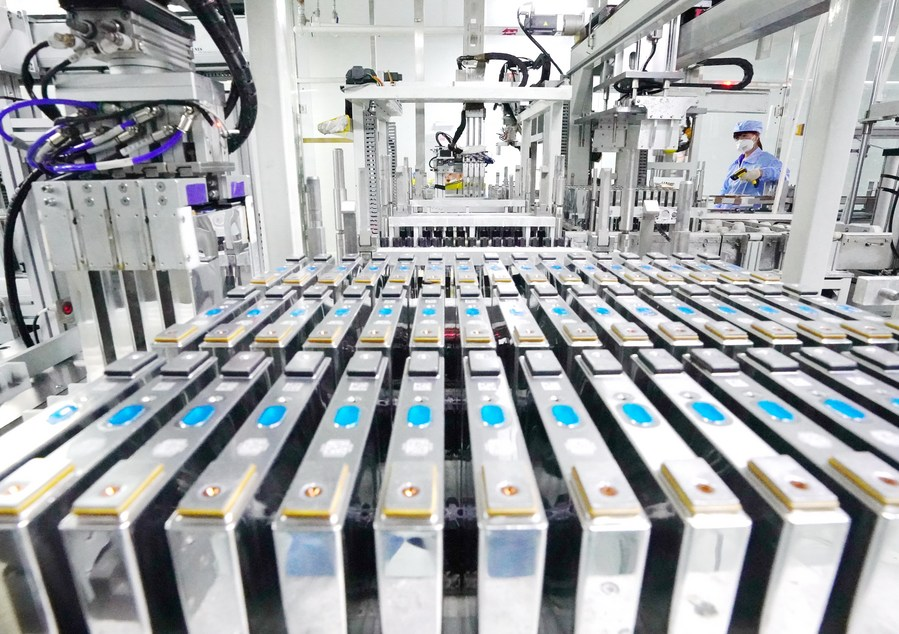BEIJING, Dec. 15 (Xinhua) -- China is seeking to boost the battery recycling sector to cope with the rise in decommissioning of aging batteries from new-energy vehicles (NEV), which have grown in popularity in recent years.
China's Ministry of Industry and Information Technology (MIIT) said it will issue a new regulation to clarify the supervisory responsibilities of national and local departments, along with the requirements for battery recycling, according to Science and Technology Daily.
The latest data from the China Association of Automobile Manufacturers showed that the cumulative NEV sales volume in China in the first 11 months this year is close to 3 million, accounting for 12.7 percent of China's total vehicle sales volume.
The service life of lithium batteries, which account for the majority in NEVs, is from five to eight years, while the effective life is four to six years. The growth of NEV sales over the years has been accompanied by an increase in the number of batteries in need of recycling.
In 2020, about 200,000 tonnes of batteries will be decommissioned in China, and in 2025 the figure will be 780,000 tonnes, according to the China Automotive Technology Research Center.
The proper recycling of batteries on such a large scale will greatly reduce the negative impact on the environment, while saving a lot of resources. This can be accomplished by extracting the remaining metals and by echelon utilization, which involves a process of inspection, classification, disassembly, battery repair or reorganization into echelon products that can then be applied to other fields.
After a new-energy vehicle battery is decommissioned, there is generally 70 percent to 80 percent of the capacity remaining, and this can be used in scenarios such as energy storage and power backup to maximize the use of the remaining energy.
Batteries that do not undergo echelon utilization can be disassembled and crushed for the extraction of the remaining valuable metals, such as nickel, cobalt and lithium, which can be reused for new battery production.
Recent technological progress has made the extraction of metals safer and more environmentally friendly. For example, a waste utilization and pollution control technology for lithium batteries can cut wastewater emission by more than 40 percent.
This technology, invented by the Institute of Process Engineering, affiliated to the Chinese Academy of Sciences, accomplishes the selective recovery of lithium and the treatment of wastewater that contains heavy metals, ammonia and nitrogen, providing support for the clean utilization of lithium batteries.
In 2020, the process won first prize in an environmental protection award from the Ministry of Ecology and Environment (MEE). A pilot project using this technology has been built to demonstrate how to recycle lithium batteries in an environmentally-friendly way.
According to the Institute of Process Engineering, the production and recycling of lithium batteries creates valuable metals as well as toxic substances such as organic solvents and compounds. Scientists are working on devising safe, efficient and green ways to recycle such materials.
A regulation jointly issued by the MIIT, MEE, Ministry of Science and Technology and other ministries in August encourages closer cooperation and information sharing between echelon utilization enterprises, NEV manufacturers, battery manufacturers and scrap automobile recycling companies.
The regulation also encourages battery manufacturers to participate in the echelon utilization of decommissioned batteries.
By the end of October this year, some 171 enterprises had set up over 10,000 battery recycling service outlets across China. Enditem




 A single purchase
A single purchase









